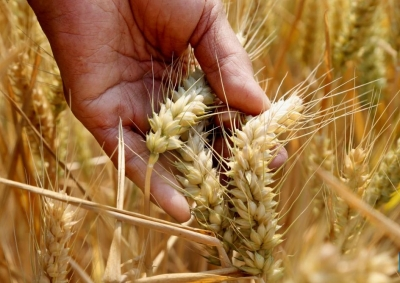A new study by researchers at the International Food Policy Research Institute (IFPRI) has proposed a transformative model for agricultural development in Senegal that could simultaneously boost food security and protect the environment. The study, published in the Journal of Cleaner Production, outlines a sustainable agricultural intensification (SI) strategy that promotes optimal crop diversification to achieve greater yields while reducing the need for cropland expansion. Senegal, like many countries in West Africa, faces the twin challenges of rapid population growth and a vulnerable agricultural sector.
Most of the country’s farmland is rain-fed, plagued by poor soil quality and inconsistent rainfall. Despite some government initiatives to increase irrigation, irrigated farmland accounts for less than five per cent of the total. Consequently, crop yields are low and climate sensitive, leading to an increasing dependence on food imports—which now make up about 70 per cent of Senegal’s domestic food demand.
To address this, IFPRI researchers used a novel methodology known as optimal portfolio analysis to re-evaluate land-use strategies. This approach treats cropland allocation similarly to how investors manage financial portfolios—balancing risk and return by diversifying investments. Applied to agriculture, this method can help farmers make more strategic decisions about which crops to plant and where, based on profitability and vulnerability to external factors such as climate change or market shifts.
The study found that Senegal’s current cropland use, heavily skewed toward low-risk, low-return staple crops, falls short of reaching the so-called “efficient frontier”—a benchmark for optimal resource allocation. By applying the optimal diversification strategy, Senegal could reduce the need for land expansion by up to 68 per cent by 2030, the researchers estimated. T h i s s u s t a i n a b l e intensification approach is especially timely. While the Senegalese government has encouraged increased public and private investment in agriculture to enhance food self-sufficiency, most of these efforts have so far focused on expanding the land area under cultivation.
The IFPRI study, however, suggests that smarter—not necessarily more—land use could yield better results. Promoting high-value crops like fruits and vegetables, rather than focusing solely on grain staples, would offer both economic and environmental benefits, the study found. Not only do these crops offer higher returns, but they also contribute to improved crop biodiversity and reduce agriculture’s overall water and carbon footprint.
Crucially, the research emphasizes the importance of adopting an economywide perspective in agricultural planning. Crop production is not isolated from other economic sectors, and strategic planning must account for interconnections across markets and supply chains. Policymakers are encouraged to consider these broader linkages when designing agricultural investment strategies. To s u p p o r t t h i s transformation, the researchers recommend targeted measures to help farmers—particularly smallholders—manage the risks associated with diversifying their crop portfolios. These could include infrastructure improvements, better access to credit, and technical support to adopt climate-resilient and highreturn crops.
The IFPRI study opens up new avenues for research into how crop choices affect land use across different landscapes. It also provides a practical framework that policymakers in Senegal and other countries in similar conditions can use to make agriculture more sustainable, productive, and resilient.
